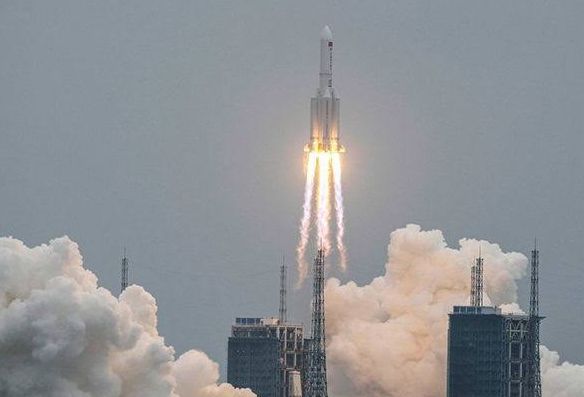China's uncontrollable rocket fell into the Indian Ocean
NASA criticizes China for failing to provide details
China's uncontrollable rocket fell into the Indian Ocean near Malaysia, the American space agency NASA has criticized China for failing to provide details.
The US space command confirmed the rocket's re-entry, while the Chinese space agency said the rocket re-entered near the same area and burned up most of it on the way down.
People in the Malaysian province of Sarawak on the island of Borneo reported on social media that they saw debris from what many initially thought was a meteorite, the third flight of China's largest rocket, the Long March 5B. Made to carry.
Last week, news of a Chinese rocket going out of control created uncertainty around the world, as the rocket could have landed anywhere from Mexico to the southern tip of Africa, potentially harming the population.
China had launched the rocket on July 24 to launch a lab module to its unfinished Tiangong space station, but China later said the rocket had lost control and was being tracked.
The Chinese Foreign Ministry said China is committed to providing timely information on the movement of the rocket, amid concerns that the rocket may land unexpectedly and pose a threat to the populated area it landed on.
This is China's third Long March 5B launch to have an out-of-control landing, with two Chinese rockets having made uncontrolled landings in 2020 and 2021.
In 2020, China used the Long March 5B to launch the Tiangong core module into space, and the rocket debris landed in Ivory Coast with no damage.In 2021, China launched its first lab module on the Long March 5B. The pieces of which fell into the Indian Ocean.
On the other hand, NASA has criticized China for the rocket crash, with NASA Administrator Bill Nelson saying on Twitter that the failure to disclose the details of the rocket crash is irresponsible and dangerous, all of space travel. Implementing nations should follow established best practices and do their part to share this type of information in advance.
Bill Nelson said that while China did not share specific velocity information, all countries should share this type of information in advance to reliably predict the risk of potential debris impacts.

